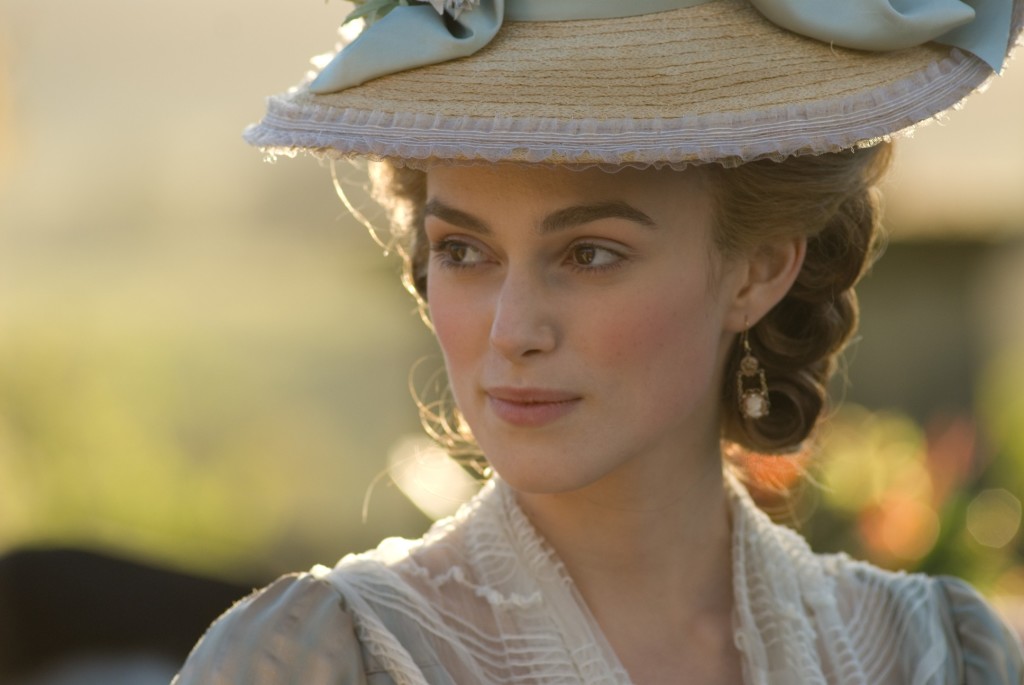Genre: Period/Biopic
Premise: The story of how a simple girl became one of the greatest leaders in the history of the world.
About: There were a couple of weeks a few months back where Catherine The Great was the big script on Hollywood Campus. Writer Kristina Lauren Anderson was feeling that love all screenwriters dream of, as everyone in town swooned over her script and wanted desperately to know what she was doing next (so they could be a part of it!). Period biopics aren’t my thing so I never got around to reading “Catherine,” but now that it’s placed on the top of The Hit List, the best-of-year screenplay list for spec screenplays, you can say I’ve officially taken notice. While this may be Anderson’s breakthrough on the screenwriting front, she did produce an independent movie called “Girlfriend” a few years ago that did well on the festival circuit. So she’s far from a stranger to the industry.
Writer: Kristina Lauren Anderson
Details: 128 pages (Draft 5.1)
 Scriptshadow Suggestion: Emma Watson for Catherine the Great?
Scriptshadow Suggestion: Emma Watson for Catherine the Great?
As I put feelers out for this script a couple of months back, I wasn’t getting the best responses. “Boring period piece” is what I heard. “It’s okay I guess, but nothing special.” Not exactly the kind of endorsement that makes you rush to double-click a PDF.
Indeed, whenever I’m tasked with reading a period piece, I find myself doing all sorts of things I supposedly “never have time to do.” Clean the apartment? Yeah, I should do that. Laundry? I guess I haven’t cleaned my towels in awhile. Alphabetize my dust-covered DVD collection? I mean, you never know when you might need to watch a DVD despite not owning a DVD player anymore.
Heck, I’ll do just about anything to avoid that dreaded page 1 of a period piece.
But none of that was necessary today. That’s because today, I learned that Catherine the Great was a fucking badass.
We meet Sophia Augustus at 17 years old, masturbating, an exercise she’ll also use a horse to achieve later in the story. Not really sure what masturbating had to do with this movie, but I think it’s to clue us in that Sophia isn’t a slave to the expectations of women at the time.
Not a beautiful girl, but extremely smart, Sophia’s mother had her do everything under the sun as a child (ballet, music, horse-riding) to prepare her for landing an important man, about the only way a woman could move up in society at the time.
Never in her or her mother’s wildest dreams, though, did they expect to be chosen by Elizabeth, the current ruler of Russia, to wed her nephew, Peter. Sophia (whose name would later be changed to “Catherine”) was about to become a princess.
But what’s that thing they say about “if it’s too good to be true?” Something about “it probably is?” Yeah. That happens here. Turns out Peter is a sickly puny ugly simpleton of a man, the 18th century equivalent of an autistic nerd. The whiny 17 year-old would rather play for hours with his toy soldiers than be lured in by the touch of a woman.
And so begins years of torture, as Catherine realizes that there is no way to please this man, to get her to like him, a task complicated by the fact that she’s expected to give the country an heir. But how can you give your country a child when your husband is more interested in his male barbies than the female anatomy?
As Catherine grows up, she begins to realize that maybe pleasing her husband in order to be the Queen of Russia isn’t the play here. Maybe the play is to rule Russia on her own. And thus begins a complicated game of the throne (so to speak) where she waits for Elizabeth to die, all the while plotting the downfall of her husband. If the cockamamie plan works out, she’ll become one of the most powerful people in the world.
 Keira Knightly to play someone since it’s a period piece?
Keira Knightly to play someone since it’s a period piece?
Wow, this script was unexpectedly top-notch!
Biopics are tricky. You can try to create three acts out of them, but it never quite works. Biopics do not have a universal template. Some start at the beginning of the subject’s life and take you to their death. Some only cover a few important years. For this reason, if you try and squeeze these scripts into a Blake Snyder beat sheet, you’ll find nothing but frustration.
So if there’s no template for biopic structure, how does one write them? Well, I can give you some basics. Just like any great story, try to come in as late as you can. So here in “Catherine the Great,” we don’t start when Catherine is born. We start when she’s 17 and looking to land a husband. That’s a good place to start since the movie centers around her marriage to Peter.
Also, remember that unlike a normal screenplay, with a biopic, the star is on the title page. This isn’t called “War in Russia.” It’s called “Catherine the Great.” That means a CHARACTER is the subject. Which means ALL YOUR FOCUS in a biopic should be on character. Creating fascinating characters. Creating troubled characters. Creating characters with flaws. Creating characters with contradictions. Creating characters who are unique. With a biopic, you have to kick ass on the character front because you’ve made a character the center of your story.
From there, you naturally extend your great characters into great relationships. The biggest reason this script is so good is because of the conflict-fueled dynamic between Catherine and Peter. At first the conflict is Catherine trying to please the aloof Peter. Then it’s her frustration with him. Then it’s her anger at him. Then it’s him leaving her for another woman. Then it’s about her getting rid of him. This is great writing. Not just constant conflict, but constant EVOLVING conflict in the story’s key relationship.
Finally, with most biopics, you want the life you’re following to BUILD. If a character is meandering, we get bored. But if every few scenes, we feel like our character has taken another stop up the staircase towards an important destination, we not only get the sense that progress is being made, but we invite the possibility that our character can fall, which add those all important stakes.
And keep in mind that you want multiple staircases to add variety to the story. As soon as your character gets to the top of one staircase, introduce another.
So here, the build starts with Catherine trying to impress Peter in order to marry her. Then we’re building towards her needing to deliver an heir. Then we’re building towards Catherine trying to take out her nemesis, a woman who steals Peter. And finally, we’re building towards Catherine taking over the crown.
If we don’t feel like our character is building up towards something, then the story remains level. It’s just a series of flat scenes, one after another, that ultimately feel directionless, because, once again, you don’t have a traditional plot to hang your story on. This is a person’s life. Not three acts of a character journey.
All this is easier said than done. You still have to come up with these interesting characters. You can’t just decide to write an interesting character and your day is over. You have to find them within yourself, in your everyday life, or do what Anderson did here – find them in history.
Where Catherine the Great really shines is that it has two great characters anchoring the story. And I want to make something clear. If either of these characters weren’t great (no pun intended) you’d have no screenplay. EVERYTHING would fall apart. Because, again, you don’t have a traditional plot supporting your story. You just have your characters and that means the characters anchoring the story have to be amazing.
And what’s so cool is that Catherine and Peter are fascinating in different ways. Catherine is smarter than everyone else, an adulteress, a heartbreaker, a schemer, and someone who struggles with what she ultimately wants. Does she want to rule Russia or doesn’t she? She’s also a classic underdog (readers always love underdogs!). She’s a nobody when she comes to this kingdom. She has no allies. No friends. And she’s a woman at a time when woman were looked at as property. So we want her to succeed and rise up against these misfortunes.
But it’s Peter who truly stands out as one of the weirdest characters you’ll ever read. He’s a grown man who likes toys. He’s sickly and horrifying to look at. He’s socially ignorant. He doesn’t have any interest in females unless they enjoy his trivial boyish hobbies. He loves the army but is a coward. He throws rocks at his own people. He gets excited by the tiniest of things, like winning meaningless card games. He’s just a grade-A weirdo. And part of the attraction of this script is watching Catherine have to deal with this nut.
This one I wasn’t expecting. It’s got that big 128 page price tag on it, but it doesn’t read like a bulky period piece. The writing is so sparse and pleasant that your eyes glide right over the words. Catherine The Great is the real deal. And I encourage all of you to read it, even if it’s just to see how someone writes a screenplay that doesn’t follow the traditional 3-act structure and accepted beat sheet of a Hollywood script.
[ ] what the hell did I just read?
[ ] wasn’t for me
[ ] worth the read
[x] impressive
[ ] genius
What I learned: For biopics – Create characters that are even more fascinating than characters in “regular” scripts, create captivating conflict inside the key relationships, and create a constant sense that our character is building towards something.

